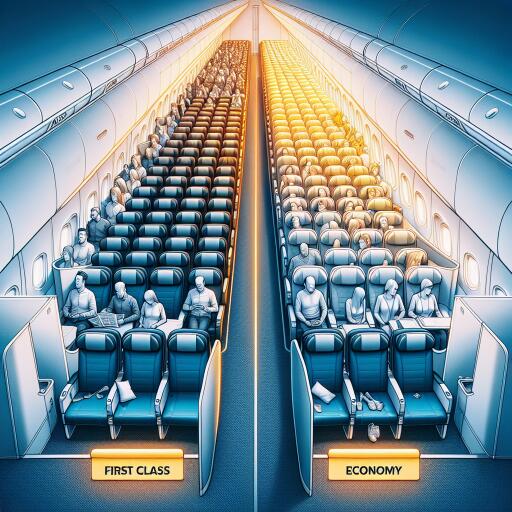Why More Air Travellers Are Shunning First Class
In the face of pervasive economic challenges impacting various sectors globally, the aviation industry has not been spared. A significant shift in the priorities of air travellers has become increasingly noticeable, with a growing number favoring the affordability of economy class over the opulence of first class. This trend underscores a broader consumer move towards cost-effectiveness amidst economic constraints.
The imperative of budgetary considerations for many air passengers cannot be overstated. Financial limitations compel a reassessment of travel expenses, rendering the premium for first-class travel unjustifiable for some. Consequently, a significant portion of air travellers are willingly trading luxury for cost savings, navigating the economic squeeze with practicality.
Airlines, too, find themselves in a tight spot due to declining revenues and the heightened competition vying for a diminishing pool of travellers. This competitive landscape has prompted airlines to rethink their cabin configurations, leading to a reduction, or in some cases, a complete phasing out of first-class seats—a reflection of changing passenger preferences.
The emergence of premium economy as an alternative to first class signifies a pivotal evolution in air travel preferences. While the economy class maintains its basic structure, aimed at enhancing passenger experience through features like seatback televisions and in-seat power outlets, a notable transformation is witnessed towards the front of the aircraft.
Previously, first-class cabins were the epitome of air travel luxury, offering amenities suited for the elites. The game changed with British Airways introducing lie-flat seats in business class in 1998, making long-haul overnight flights more attractive to business travellers. This innovation reduced the appeal of first class, as the distinctions between the two began to blur.
The preference for lie-flat seats in business class underscored a shift in corporate travel dynamics, challenging the very relevance of first-class services. This led to a gradual discontinuation of first-class offerings by many airlines, as the gap between economy and business class offerings provided sufficient luxury for travellers without the exorbitant price tag of first class.
In this evolving landscape, premium economy has risen as a sought-after option for those desiring an upgrade without the steep costs associated with business class. The inception of premium economy on ultra-long-haul routes catered to a niche market of travellers in search of enhanced comfort and accessibility.
Major airlines have since embraced premium economy, presenting it as a viable compromise between the extremes of economy and business class. Unlike its initial days, where it closely mirrored the economy in service standards, premium economy now boasts better meal services and amenities, appealing to a wider audience of travellers.
The evolution of premium economy and the repositioning of business class to cater to a broader clientele illustrate the changing dynamics of air travel. As airlines continue to innovate and cater to diverse passenger needs, premium economy stands as a testament to the industry’s adaptability and commitment to passenger satisfaction in changing times.
What emerges from this shift is a clear indicator of the aviation industry’s response to changing consumer preferences—marking a significant move towards flexibility, comfort, and affordability. This transformation reflects not just a change in how airlines configure their offerings but a deep understanding of the evolving landscape of passenger expectations and economic realities.
